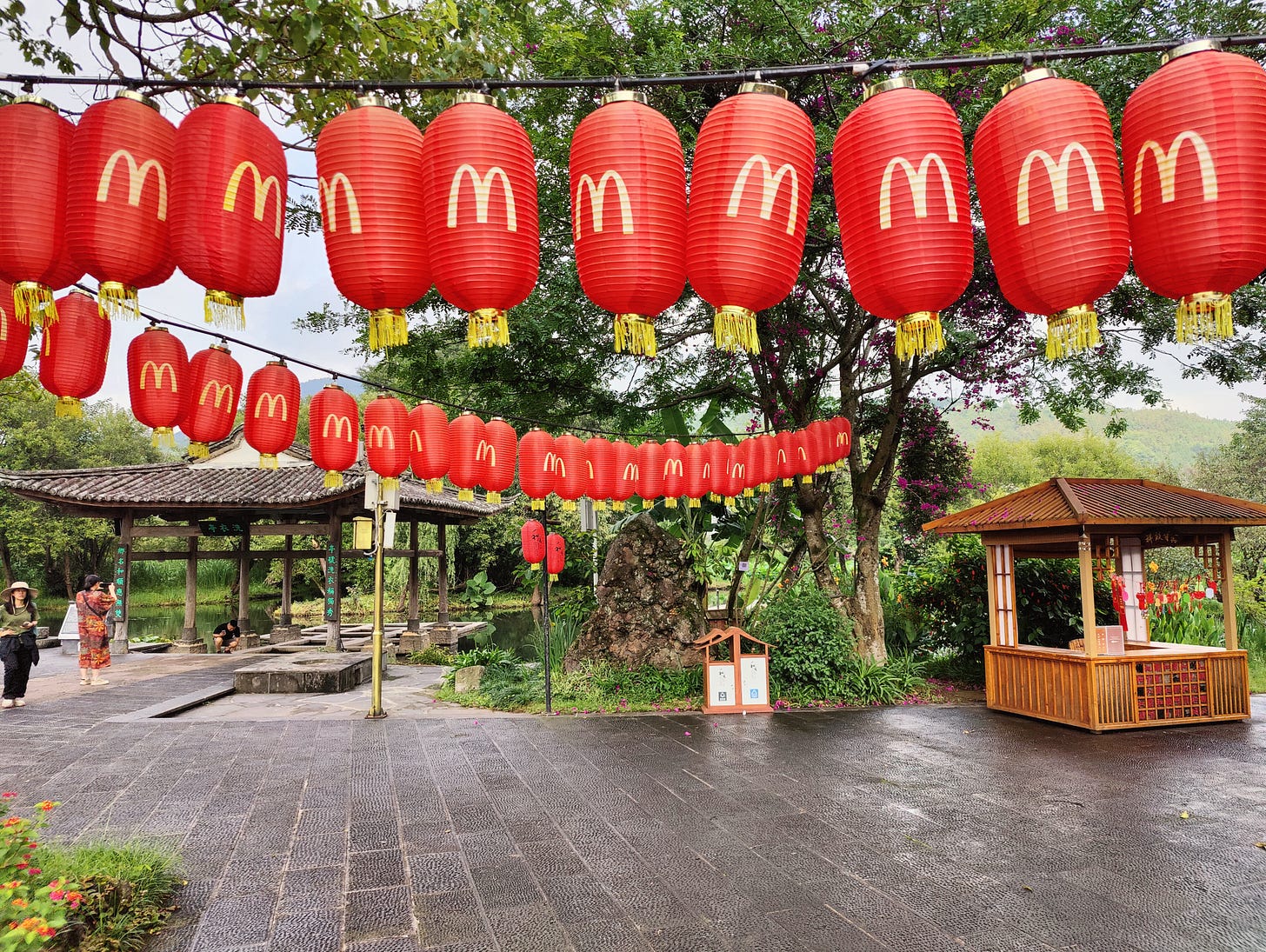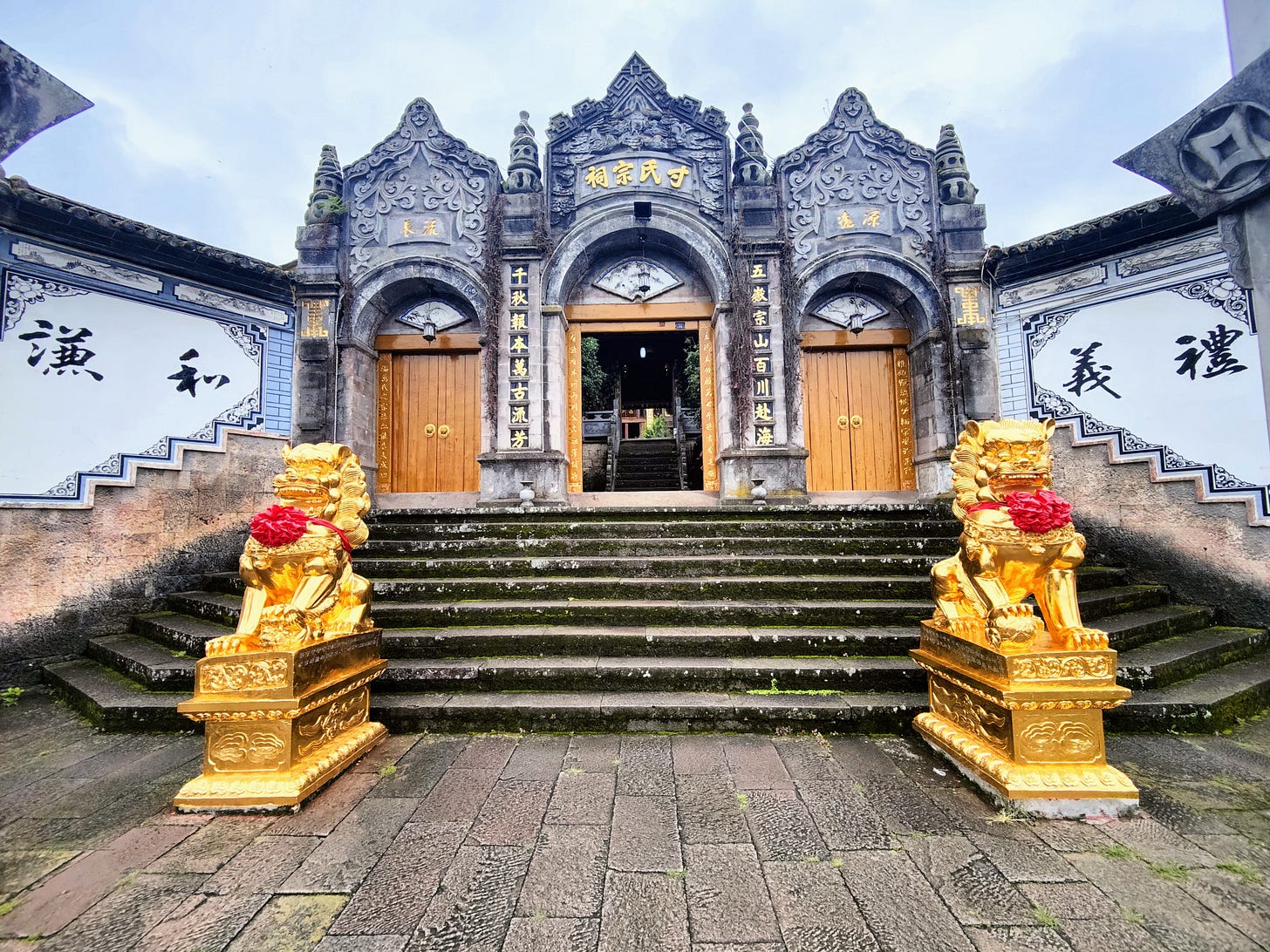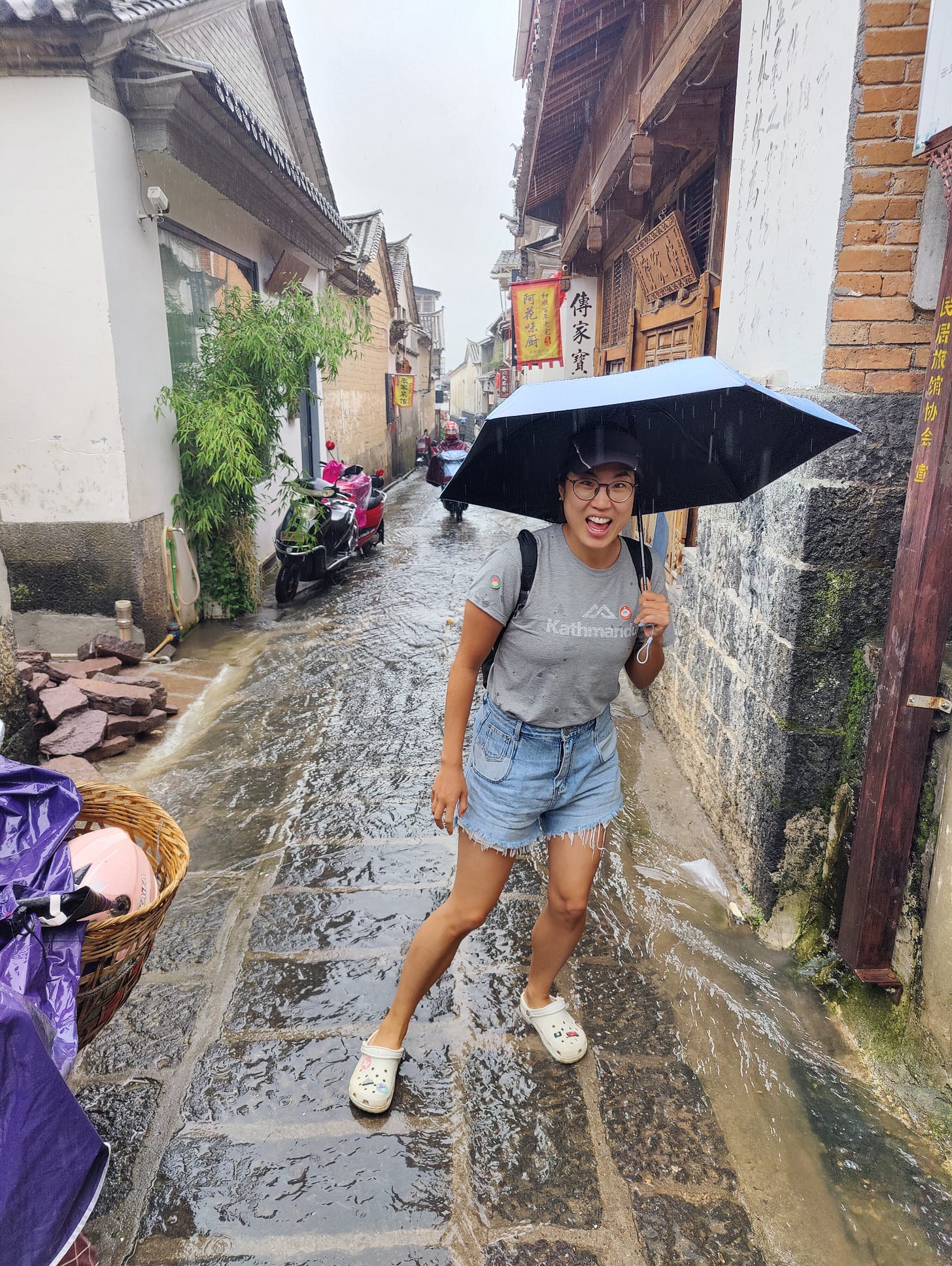Tengchong volcanic wonderland and the ancient village of Heshun
Where hot water spews from the ground and tourists cough up coins to get into an ancient village.
"This is the most expensive hotel on our trip," Zoe informed me, as we drove our bags and one wheely-case up the stone steps and into the flashy lobby. Books and ornate pottery adorned the high, up-lit shelves, code for “intelligentsia welcome here”. An alcove in one corner featured stepping stones through white gravel, leading to a pre-laid - and probably never used - dining table. The wide, white sofas wouldn’t have looked out of place with naked Roman statues lounging on them. NZ$85 per night well spent.
This was the city of Tengchong 腾冲, our second stop on our tour of Yunnan Province. Found roughly 100km north of Mangshi, the city’s northwestern boundary borders Myanmar for 151km and homes a population of 620,000. It’s famous for its volcanic hot springs.
To get there, we’d taken the two hour bus ride from Mangshi, popping over the mountains at altitudes of around 2,000 metres. By contrast, my school bus used to drop from one of the highest points in London - the summit of Shooters Hill, altitude 130 metres - to Welling, at 41 metres. Mangshi to Tengchong is safely the highest bus ride I’ve ever been on.
Our hotel - Tengchong Kasion Purey - had a couple of thermal pools and a relaxation room on its roof. The city boasts countless other hot pool options, but we weren’t going out after that day spent travelling.
The food delivery robot brought some eats to our room, although two of our three deliveries came via the delivery men themselves. "Forget the robot, go up and see the foreigner in room 6608 for yourself!" I imagined the front desk offering.
While tasty, I hold that food responsible for my first round of 'the squits', which came on several hours after consumption. I'd done so well: Shanghai, Kunming Airport and Mangshi had all failed to break me. Tenchong, it seemed, was where it would go wrong. Spicy tofu, veges and rice are hardly a known poison factory, but there we were.
A night dip in the hot pool on the roof and an hour at the buffet breakfast the next day failed to re-energise me, so I was only partially present as we wandered the Tengchong Volcano Rehai Thermal Wonderland (I added the Wonderland bit, all thermal areas are wonderlands). Still, it's an impressive place, with steaming streams pouring over large rocks and bubbling pools emerging from the earth. The water looks grey-ish and mineral-heavy as it blub-blubs from the Earth's tiny pores.
The park’s walking route follows the valley downstream, as geysers burst from the stream bed, before climbing steeply to pass several pools of very, very, very hot water. At the top of this climb is the centrepiece: Big Boiling Pot (said the English signs). Surrounded by an old patio and fence, a large pool, several metres in diameter, bubbles away. Clouds of steam waft from its surface. Large crowds of people tussle and sidestep one another, trying to get in position for the perfect shot. Then, there were the egg sellers. For an inflated price, you can buy your very own raw egg to cook using the natural hot springs. No, thanks (不需要!).
Our second day in Tengchong was spent at the ancient village of Heshun. Think: tiny lanes, barely wide enough for a car to fit through (though, that didn't stop them!), classic Chinese roof tiles and intricately carved and colourful wooden door frames. Lotus flowers fill the many ponds and waterways, while gold lions shimmer, on guard in entrance-ways. Then, completely out of the blue, you spy the world’s most recognisable symbol of communism: McDonald's.
Tourists from all over China flock to Heshun. It's one of the only ancient cities with a fee to enter, but that doesn't stop the crowds. After dark, the locals pull out their BBQs and sell a delicacy at the night market known as erkuai: a chunky rice pancake, with sesame and chilli paste inside. It's sour, spicy and delicious.
Come morning, the night market is switched out for a day market, selling fruits, vegetables, live fish, live turtles, dead purple chickens and other things I don't need. As we wandered through the streets the heavens opened. The water with nowhere to run, turned the village’s narrow lanes into rivers. At first, slides felt like the wrong footwear, but the more the rain persisted and the river level rose, the more vindicated they became.
We took refuge in my favourite of all my favourite places: a coffee shop. The two girls, in their brown denim shopkeeper overalls, whipped up a delicious oat flat white and a black pour-over, while the rain crashed past the shop's wide open windows.
The coffee was (again) delicious and it was the perfect spot to farewell Tengchong from. Not that we’d seen much of Tengchong itself. That would have to wait until next time, for we were heading to Dàlǐ.









